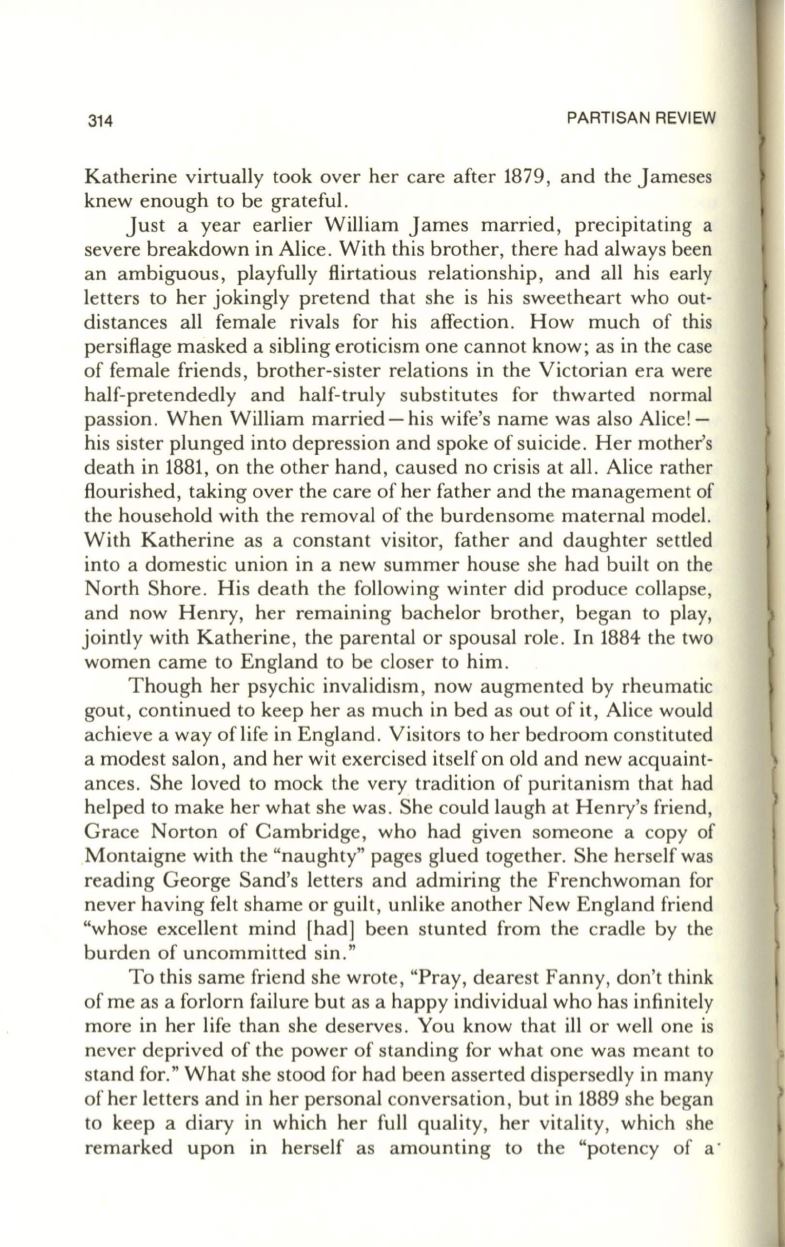
314
PARTISAN REVIEW
Katherine virtually took over her care after 1879, and the J ameses
knew enough to be grateful.
Just a year earlier William James married, precipitating a
severe breakdown in Alice. With this brother, there had always been
an ambiguous , playfully flirtatious relationship, and all his early
letters to her jokingly pretend that she is his sweetheart who out–
distances all female rivals for his affection. How much of this
persiflage masked a sibling eroticism one cannot know; as in the case
of female friends, brother-sister relations in the Victorian era were
half-pretendedly and half-truly substitutes for thwarted normal
passion. When William married - his wife's name was also Alice!–
his sister plunged into depression and spoke of suicide. Her mother's
death in 1881, on the other hand, caused no crisis at all . Alice rather
flourished, taking over the care of her father and the management of
the household with the removal of the burdensome maternal model.
With Katherine as a constant visitor, father and daughter settled
into a domestic union in a new summer house she had built on the
North Shore . His death the following winter did produce collapse,
and now Henry, her remaining bachelor brother, began to play,
jointly with Katherine , the parental or spousal role . In 1884 the two
women came to England to be closer to him .
Though her psychic invalidism, now augmented by rheumatic
gout, continued to keep her as much in bed as out of it, Alice would
achieve a way of life in England . Visitors to her bedroom constituted
a modest salon, and her wit exercised itself on old and new acquaint–
ances. She loved to mock the very tradition of puritanism that had
helped to make her what she was . She could laugh at Henry's friend,
Grace Norton of Cambridge , who had given someone a copy of
Montaigne with the "naughty" pages glued together. She herself was
reading George Sand's letters and admiring the Frenchwoman for
never having felt shame or guilt, unlike another New England friend
"whose excellent mind [had] been stunted from the cradle by the
burden of uncommitted sin ."
To this same friend she wrote, "Pray, dearest Fanny, don't think
of me as a forlorn failure but as a happy individual who has infinitely
more in her life than she deserves . You know that ill or well one is
never deprived of the power of standing for what one was meant to
stand for." What she stood for had been asserted dispersedly in many
of her letters and in her personal conversation, but in 1889 she began
to keep a diary in which her full quality, her vitality, which she
remarked upon in herself as amounting to the "potency of a ·


